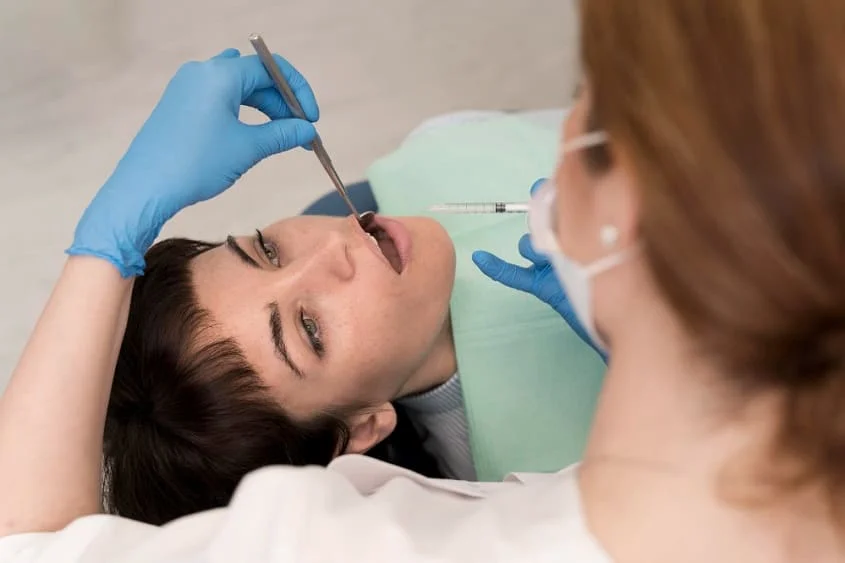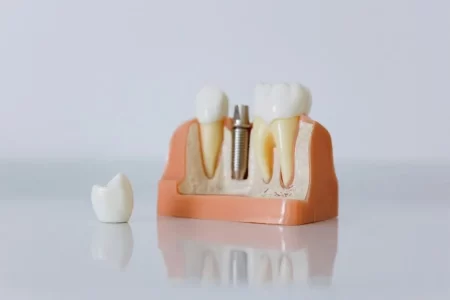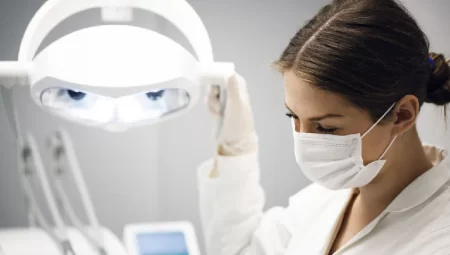Wisdom Tooth Extraction in London: What You Need to Know
- Updated on: Dec 11, 2024
- 5 min Read
- Published on Dec 11, 2024

Wisdom tooth extraction is one of the most common dental procedures performed worldwide. While some people’s wisdom teeth grow in without causing any issues others experience discomfort, infection or damage to surrounding teeth. If you’re considering wisdom tooth extraction in London it’s essential to understand the procedure its benefits and what to expect before during and after the treatment. In this article we’ll discuss the reasons for extraction the process and how to find the right dentist in London for this procedure.
What Are Wisdom Teeth?
Wisdom teeth are the third set of molars located at the back of your mouth and they are typically the last teeth to come in usually during the late teens to early twenties. Evolutionarily they were important for our ancestors who had larger jaws and needed extra teeth to chew through rough food. However in modern times these teeth are often unnecessary and can cause problems due to limited space in the jaw.
For many people wisdom teeth emerge without any issues but for others they can lead to various dental problems that require removal. Wisdom tooth extraction is a straightforward procedure that is commonly recommended by dentists when these teeth cause pain infection or alignment problems.
Why Might Wisdom Teeth Need to Be Extracted?
Not everyone needs to have their wisdom teeth removed. However there are several reasons why your dentist may recommend extraction including:
Impaction
An impacted wisdom tooth occurs when it doesn’t have enough space to emerge properly through the gums. This can lead to discomfort swelling and even infection. In some cases impacted wisdom teeth can grow at odd angles pushing against nearby teeth and causing misalignment or damage.
Infection or Gum Disease
When a wisdom tooth doesn’t fully emerge it can create a flap of gum tissue that traps food and bacteria increasing the risk of infection. This can lead to pain swelling and bad breath. If untreated this can develop into more serious gum disease or even affect the nearby teeth.
Tooth Damage
Sometimes wisdom teeth may partially emerge but cause damage to adjacent teeth by crowding them or creating cavities. The pressure from an impacted wisdom tooth can also push other teeth out of alignment leading to bite problems or orthodontic complications.
Cysts or Tumours
In rare cases an impacted wisdom tooth can lead to the development of cysts or benign tumours in the jaw. This can cause significant damage to the surrounding bone and tissue which may require surgical intervention.
Preventive Measures
Even if your wisdom teeth aren’t causing any immediate problems your dentist may recommend extraction as a preventive measure to avoid potential future complications. If there’s insufficient space in the mouth or if the wisdom teeth are in a position where they are likely to cause problems later early extraction may be suggested.
The Wisdom Tooth Extraction Procedure
The process of wisdom tooth extraction is generally straightforward but the complexity of the procedure can vary depending on the position of the wisdom tooth and whether it’s impacted.
Consultation and Evaluation
Before the extraction you’ll have a consultation with your dentist or oral surgeon. During this appointment your dentist will evaluate your oral health take X-rays of your teeth and jaw and discuss any potential complications that may arise during the procedure. Based on this evaluation your dentist will explain the best approach for your extraction and address any concerns you may have.
Anesthesia Options
Wisdom tooth extraction is typically performed under local anaesthesia to numb the area around the affected tooth. However depending on the complexity of the extraction and the patient’s level of anxiety other sedation options may be offered such as:
- Local Anesthesia: The area around the wisdom tooth is numbed and you remain awake during the procedure.
- Sedation Dentistry: A mild sedative is given to relax you while the dentist administers local anaesthesia.
- General Anesthesia: In more complicated cases or for patients who feel very anxious general anesthesia may be used to ensure you are completely asleep during the procedure.
The Extraction Process
Once you are properly numbed or sedated the dentist will begin the extraction. If the tooth is impacted your dentist may need to make a small incision in the gum tissue to access the tooth. In some cases the tooth may need to be broken into smaller pieces for easier removal.
For simple extractions (when the tooth is fully erupted) the dentist will simply loosen the tooth and remove it. In more complicated cases the dentist may need to remove the tooth in sections.
Post-Procedure Care
After the wisdom tooth is removed your dentist will provide you with aftercare instructions to ensure a smooth recovery. This may include advice on how to manage pain and swelling how to care for the extraction site and when to follow up with the dentist for a check-up.
Most patients experience some swelling and discomfort for a few days after the procedure but this can usually be managed with prescribed pain relievers and over-the-counter medication. Ice packs can also help reduce swelling during the first 24-48 hours. It’s essential to follow your dentist’s instructions for oral hygiene during recovery to prevent infection.
What to Expect After Wisdom Tooth Extraction
While recovery times can vary depending on the complexity of the extraction most people recover within a few days to a week. Here’s what to expect:
Swelling and Bruising
Swelling around the extraction site is common especially in the first 48 hours. Bruising may also develop in some cases. Ice packs can help minimize swelling and your dentist may recommend over-the-counter anti-inflammatory medications to manage these symptoms.
Pain Management
You will likely experience some discomfort after the procedure but pain is typically manageable with prescribed painkillers or over-the-counter medication. Make sure to follow your dentist’s instructions for pain management to avoid complications.
Dietary Restrictions
For the first few days it’s essential to stick to soft foods and avoid chewing directly on the extraction site. Hot or spicy foods should be avoided as well as straws which can create a vacuum and dislodge the blood clot in the extraction site leading to a painful condition called dry socket.
Follow-Up Appointments
In most cases your dentist will schedule a follow-up appointment to monitor your recovery. During this visit they’ll check for signs of infection review your healing progress and remove any stitches if necessary.
Choosing the Right Dentist for Wisdom Tooth Extraction in London
Choosing the right dental professional for your wisdom tooth extraction is crucial to ensuring a successful procedure and a smooth recovery. When selecting a dentist or oral surgeon in London consider the following:
- Experience and Expertise: Look for a dentist or oral surgeon with experience in performing wisdom tooth extractions especially for complex cases.
- Patient Reviews: Reading reviews from other patients can give you a sense of the dentist’s skills and the quality of care they provide.
- Modern Technology: Ensure that the practice uses advanced imaging technology such as digital X-rays to accurately assess your jaw and teeth.
- Sedation Options: If you’re nervous about the procedure find a dentist who offers sedation options to ensure your comfort throughout the process.
Conclusion
Wisdom tooth extraction is a common and relatively straightforward procedure that can help prevent a variety of dental problems. If you’re experiencing pain discomfort or other issues with your wisdom teeth seeking professional care in London can help you achieve a healthier more comfortable smile. By understanding the process potential complications and aftercare you can be better prepared for the procedure and ensure a smooth recovery.
Consult with an experienced dentist or oral surgeon in London to determine the best course of action for your wisdom teeth. With the right care and attention you can ensure that your wisdom tooth extraction is a positive step toward better dental health.












